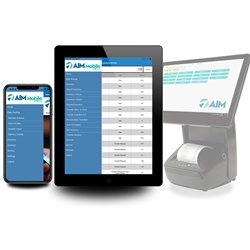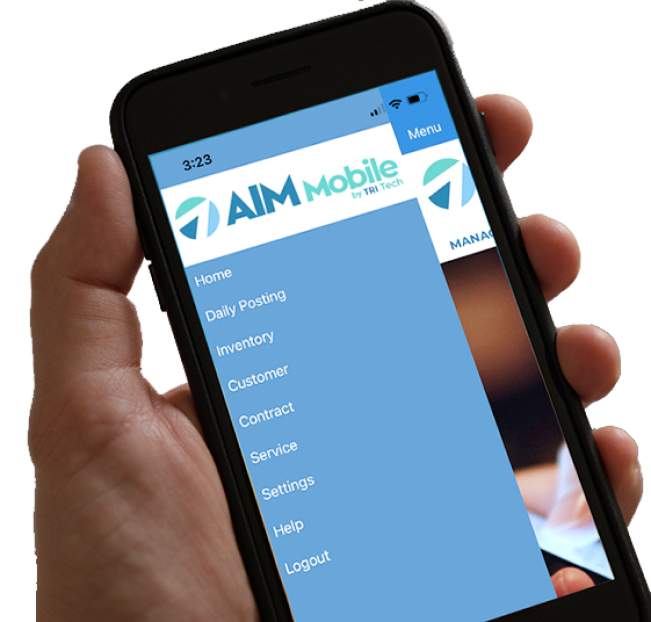Picture this: It’s a busy Saturday afternoon, your store is buzzing with customers, and your team is juggling everything from checkout lines to stock questions. Now imagine trying to handle all of that without the right tools.
Your point of sale (POS) system is one of those critical tools.
In retail, every decision matters, and your POS system is one of the most important investments you’ll make. It not only processes transactions — it helps you manage inventory, engage with customers, and monitor business trends so you can successfully grow.
In this blog, we’ll walk you through what to look for in a POS system so you can make an informed choice that sets your business up for success. Whether you’ve never had a POS solution or you’re ready to upgrade from what you’re currently using, we’re here to help!
What To Look For in A POS System For Retail
Choosing the right POS system is a big decision for any small business owner. With so many options on the market, it’s easy to feel overwhelmed. But understanding what to look for in a POS system can help simplify the process and ensure you choose one that fits your business' unique needs.
Here are five essential software features to prioritize when evaluating your options.
1. Comprehensive Inventory Management
Imagine walking into your stockroom and knowing exactly what’s on the shelves, what needs reordering, and what’s flying out the door. That’s the power of a POS system with strong inventory management features.
Without effective inventory management, your business risks overstocking items that gather dust or running out of top-sellers, leading to missed sales opportunities. When you have a robust POS system in place, your business simply runs smoother.
A great point of sale system should offer:
- Tools to track serialized items, accessories, and kits
- Automated stock level adjustments to prevent overstocking or running out
- Detailed sales and inventory reports that show trends, costs, and profits
For example, with an advanced retail POS, you can set minimum and maximum inventory thresholds to easily know when to reorder, which saves you time and reduces errors. These capabilities make it easier to focus on growing your business instead of managing stock manually. Plus, having real-time inventory data allows you to make smarter purchasing decisions and keep customers happy with consistently stocked shelves.
2. Customer Management Tools
Stocking your shelves with great products isn’t worth much if customers don’t enjoy shopping in your store. Building connections and offering personalized experiences that make your business stand out is the best way to keep people coming back, but that isn’t always easy.
With the right POS system, you can go beyond basic transactions and start creating meaningful relationships with your customers. This is a key factor when determining what to look for in a point of sale system.
To create a memorable customer experience, prioritize these POS features:
- Detailed customer profiles with purchase history
- Built-in loyalty programs to reward frequent shoppers
- Marketing tools to create personalized promotions or send targeted offers
With these tools, businesses can gain insights into customer preferences, enabling more effective engagement and tailored marketing campaigns. For instance, knowing a customer’s past purchases allows you to recommend related products or offer special discounts, making them feel valued.
Keeping customers happy and engaged keeps them coming back — and turning first-time buyers into loyal patrons can have a major impact on your bottom line.
3. Flexible Sales Processing
Every second counts when a line of customers is waiting to check out. Slow or cumbersome checkout processes can lead to frustrated customers and lost sales, so your POS system needs to make transactions fast and simple. A streamlined sales process ensures your customers leave happy and your staff can focus on delivering great service.
Your POS system should make transactions fast and simple by offering:
- Quick sale options for single-item purchases
- The ability to suspend and recall sales
- Support for multiple payment methods, including credit, debit, and contactless payments
A user-friendly checkout process ensures smoother transactions and happier customers. Look for systems that can handle busy periods without slowing down operations. For example, the ability to suspend a transaction and pick it back up later can be a lifesaver in situations where customers need a moment to grab another item or check a detail like size or color.
The flexibility to accommodate various payment methods also ensures you’re meeting the expectations of today’s tech-savvy shoppers.
4. Comprehensive Reporting and Analytics
Making smart decisions starts with having the right data at your fingertips. Whether you’re tracking daily sales, identifying trends, or planning your next big promotion, actionable insights can give you a competitive edge. This is one of the most critical aspects of what to look for in a POS system, as powerful analytics can turn raw data into meaningful strategies.
An effective POS system should provide access to:
- Real-time sales data and customizable reporting tools
- Metrics for inventory turnover, profitability, and sales trends
- Easy-to-read dashboards that help you identify growth opportunities
For example, a POS system with detailed analytics can reveal which products are selling best and which are underperforming, helping you make smarter inventory decisions. A good system doesn’t just show you the numbers — it helps you understand what they mean.
With these insights, you can adjust your pricing strategy, plan promotions, or even decide which new products to introduce. And by regularly monitoring performance metrics, you’ll be in a better position to adapt quickly to changing market conditions.
5. Scalability and Customization
Your business is constantly evolving, and your POS system should be ready to evolve with it. Whether you’re starting small or already managing multiple locations, flexibility is a must. A scalable POS system not only grows with your business, but adapts to the specific needs of your industry.
Flexibility is crucial, so focus on systems that provide:
- Modular add-ons to support your specific industry needs
- E-commerce and mobile integration for online and in-store sales
- Customizable settings to fit your unique processes and workflows
Whether you’re managing a single store or expanding to multiple locations, a scalable POS system adapts to your changing needs — without requiring a complete overhaul. For example, if you decide to launch an online store, a POS system with built-in e-commerce (or integration support) can seamlessly sync your inventory and sales data across platforms.
Similarly, industry-specific add-ons — like those tailored to apparel, food service, or electronics — make a big difference in your day-to-day operations. Customization options also ensure the system works the way you do, rather than forcing you to adjust your processes to fit the software.
Transform Your Business With a Retail POS System
Knowing what to look for in a POS system makes all the difference when it comes to choosing the right one for your business. Prioritize systems that offer robust inventory management, customer relationship tools, easy sales processing, detailed analytics, and scalability. These features set your business up for long-term success.
AIM by Tri-Tech has all of these features (and more!) out of the box, setting any retailer up for success. If you’re ready to learn more, schedule a demo to explore how a retail POS system can transform your small business.






